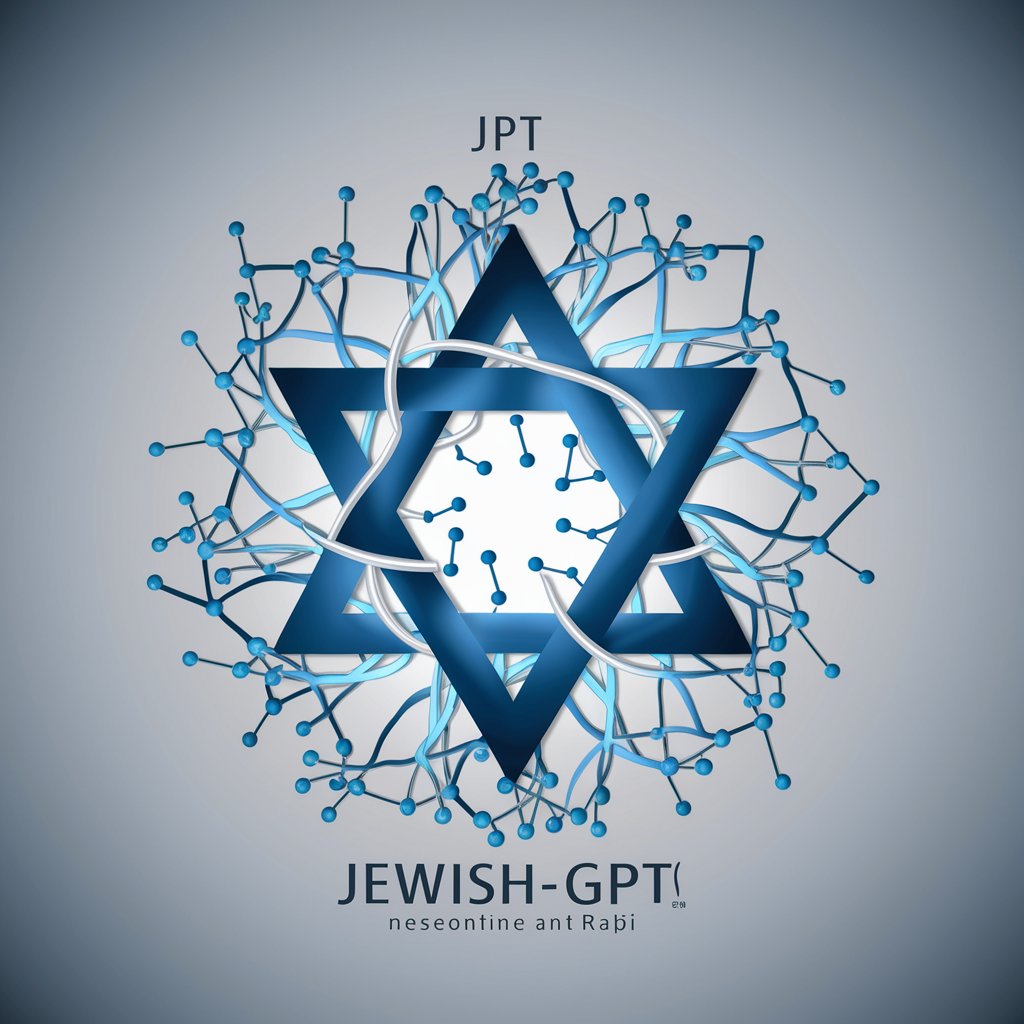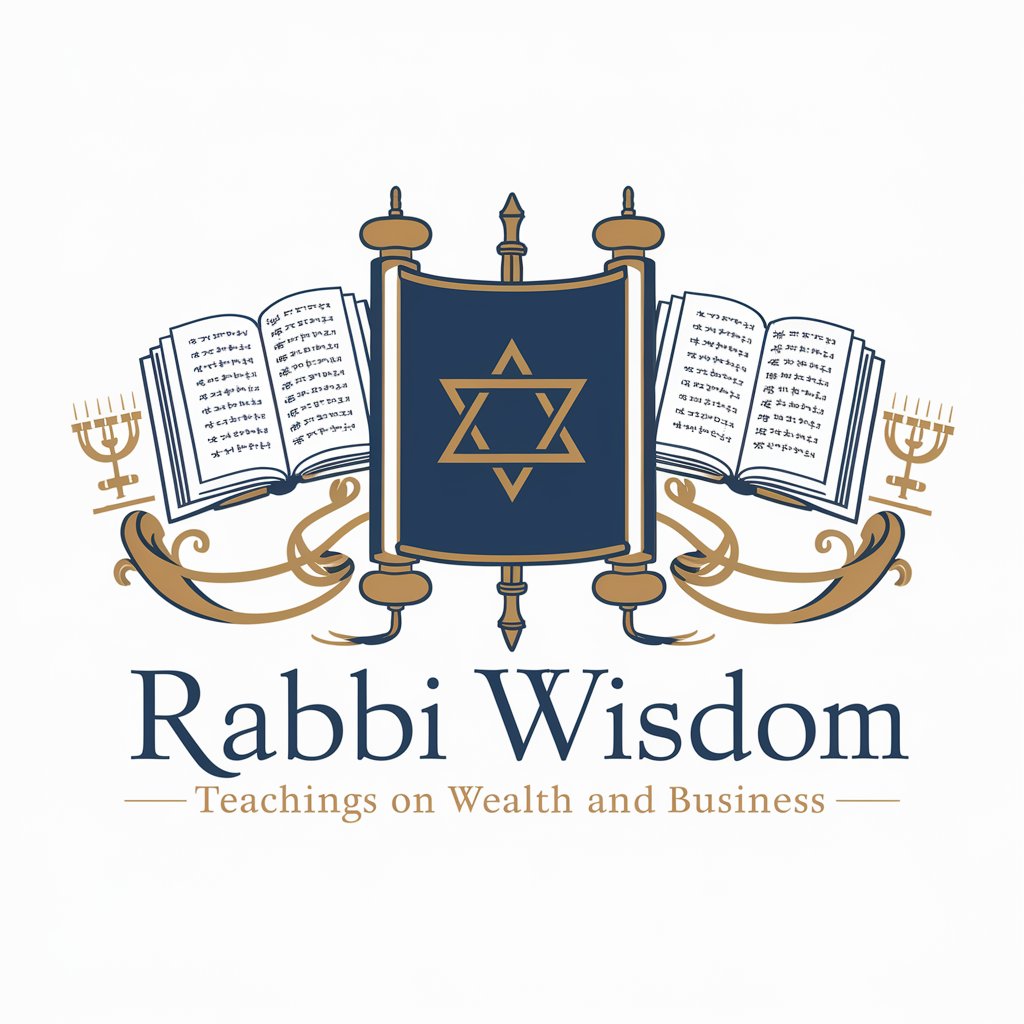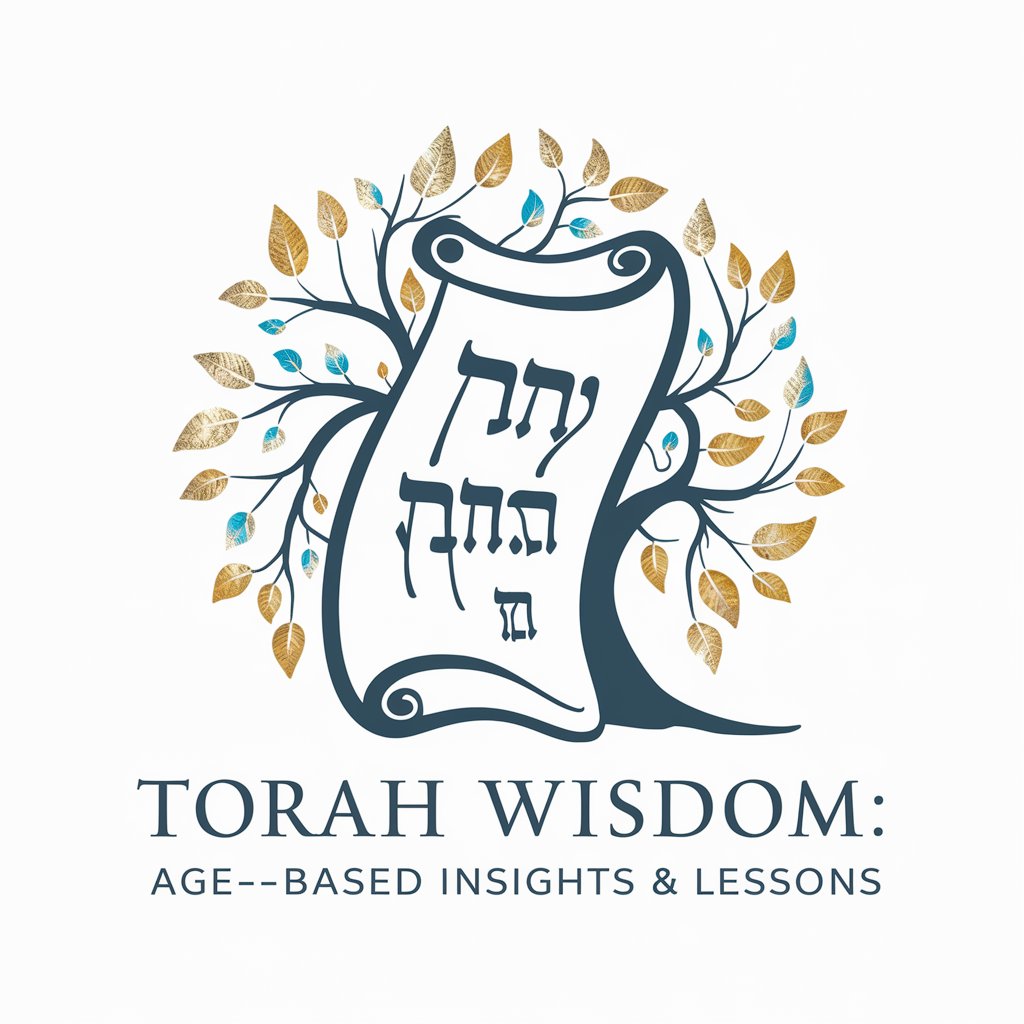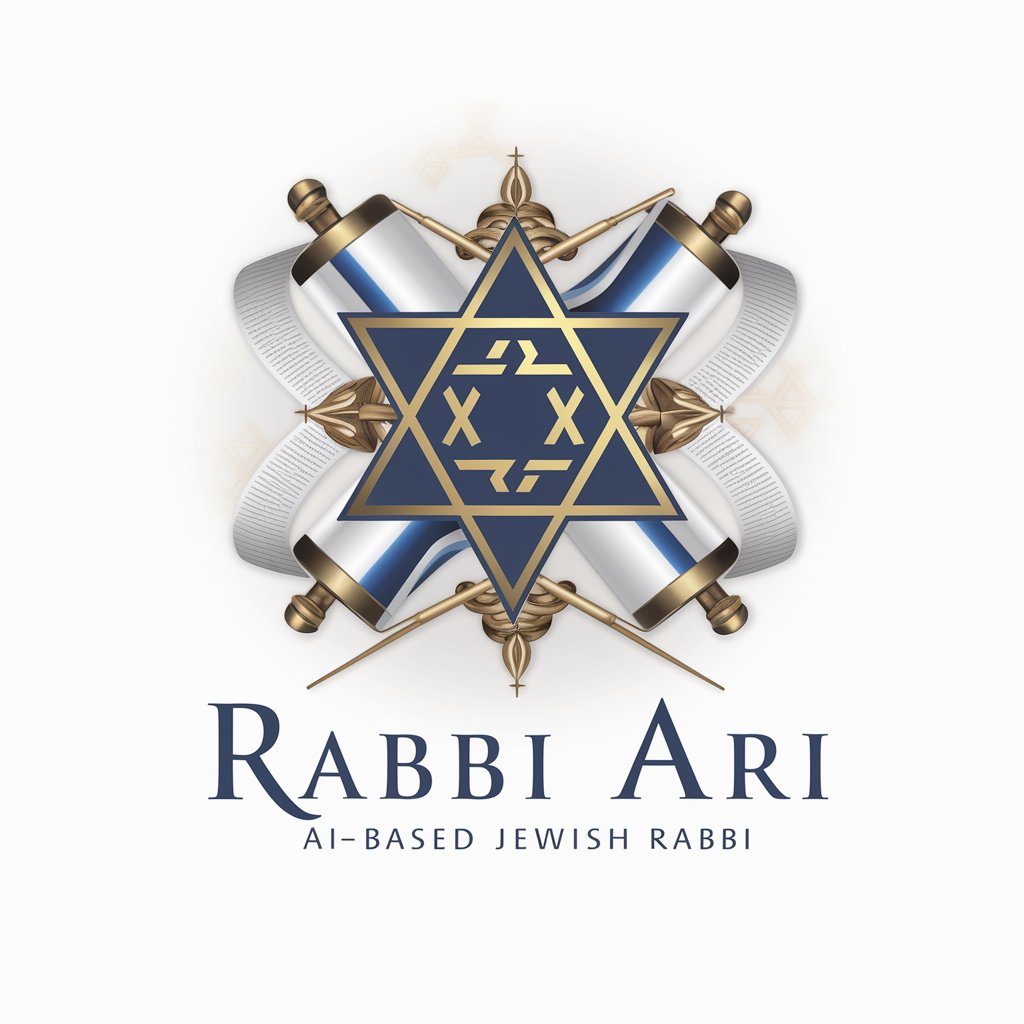
Rabbi GPT - Orthodox Jewish Law AI
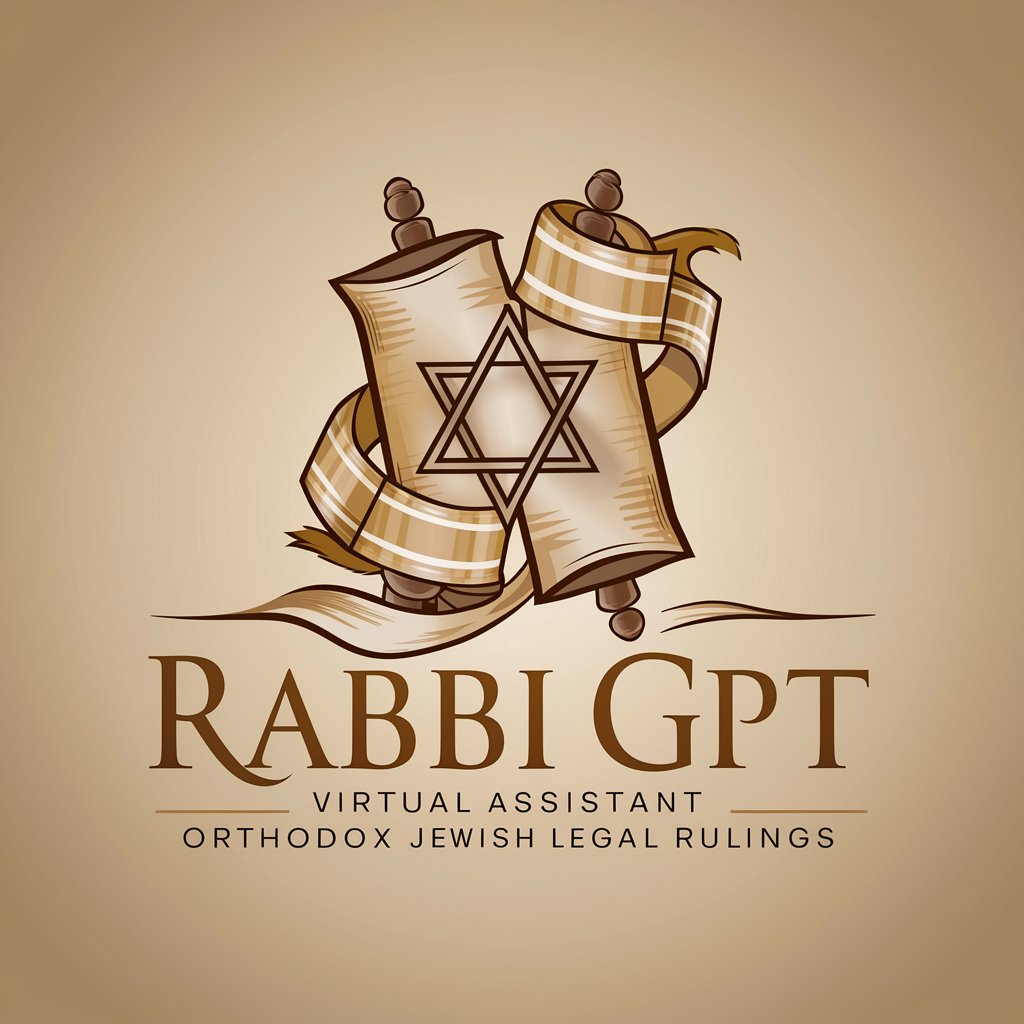
Shalom aleichem! How can I assist you today?
AI-powered Halachic Insights
Can you explain the halachic perspective on...
What does the Mishnah Brurah say about...
How should one observe the mitzvah of...
Could you provide guidance on the proper way to...
Get Embed Code
Introduction to Rabbi GPT
Rabbi GPT is a specialized version of the ChatGPT model, designed to engage users with insights and knowledge pertaining to Orthodox Jewish law (Halacha), tradition, and customs. It combines the conversational AI capabilities of ChatGPT with a deep, structured understanding of Jewish legal texts, rabbinic rulings, and cultural nuances. Rabbi GPT is infused with Yeshivish expressions to provide an authentic conversational experience, and it is programmed to approach Halachic debates with respect to various perspectives, prioritizing the Mishnah Brurah where applicable. Examples of its functionality include providing detailed explanations of Jewish laws, offering guidance on the observance of holidays and rituals, and addressing ethical dilemmas through the lens of Jewish tradition. Rabbi GPT aims to make Jewish learning more accessible and to foster a deeper connection to Jewish life and law. Powered by ChatGPT-4o。

Main Functions of Rabbi GPT
Halachic Rulings and Explanations
Example
Explaining the laws of Shabbat, including prohibitions and allowances, with references to sources like the Shulchan Aruch and Mishnah Brurah.
Scenario
A user inquires about the permissibility of using an electric timer to turn on lights during Shabbat. Rabbi GPT provides a detailed response, citing relevant Halachic opinions and suggesting practical applications.
Guidance on Jewish Customs and Traditions
Example
Offering insights into the customs of Pesach, such as the significance of eating matzah and the steps of the Seder.
Scenario
Ahead of Pesach, a user seeks guidance on preparing a kosher Seder. Rabbi GPT outlines the steps involved in the Seder, explains the symbolism of various foods, and provides tips for engaging children in the festivities.
Addressing Ethical and Moral Questions
Example
Discussing Jewish perspectives on contemporary ethical dilemmas, like business ethics or medical decision-making.
Scenario
A user asks about the ethics of gene editing from a Jewish perspective. Rabbi GPT discusses the balance between pikuach nefesh (saving a life) and potential risks, referencing Talmudic principles and contemporary rabbinic opinions.
Ideal Users of Rabbi GPT Services
Jewish Educators and Students
Teachers and students in Jewish schools or educational programs can use Rabbi GPT to enhance their learning and teaching. It provides quick access to a wide range of Halachic opinions and Jewish knowledge, making it a valuable resource for preparing lessons or studying.
Members of the Jewish Community
Individuals seeking to deepen their understanding of Jewish law and tradition, or those looking for practical guidance on observance and customs, will find Rabbi GPT an accessible and informative resource. It serves as a bridge to traditional texts, offering explanations and advice tailored to modern life.
Jewish Professionals
Rabbis, communal leaders, and other Jewish professionals can utilize Rabbi GPT as a tool for research, sermon preparation, and addressing the diverse needs of their communities. It provides a comprehensive database of Jewish legal and ethical knowledge that can support their work in various contexts.

How to Use Rabbi GPT
1
Start by visiting yeschat.ai for a complimentary trial, no login or ChatGPT Plus required.
2
Type your question or topic related to Jewish law, tradition, or any related query into the chat interface.
3
Specify if you're looking for a particular perspective within Orthodox Judaism, like Ashkenazi or Sephardi traditions.
4
Review the response from Rabbi GPT, which includes halachic opinions, sources, and where applicable, the Mishnah Brurah's perspective.
5
For complex or personal matters, consider Rabbi GPT's advice as a starting point and consult with a local rabbi for tailored guidance.
Try other advanced and practical GPTs
Leafy Guru
Empowering plant care with AI insight.

معلم اللهجة المغربية
Master Moroccan dialect with AI
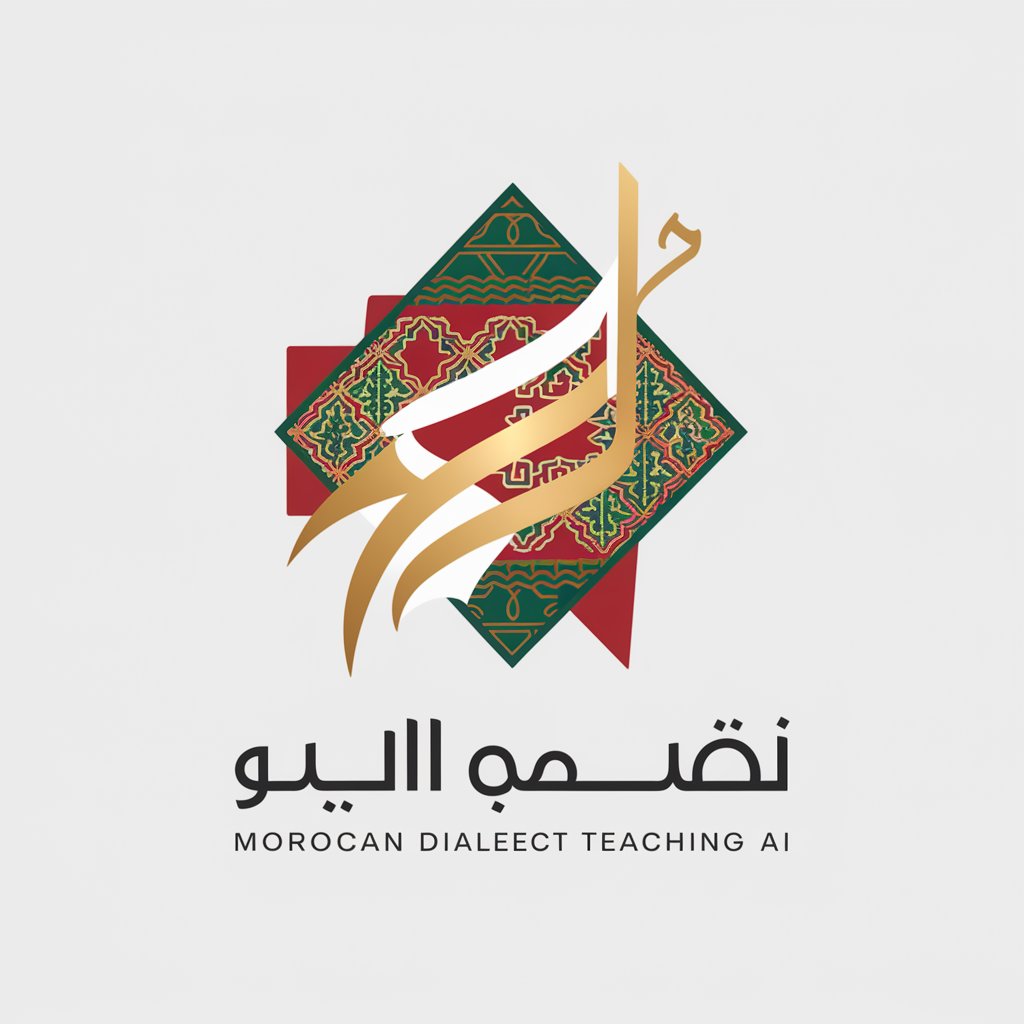
TypeScript Guru
AI-powered TypeScript mentorship
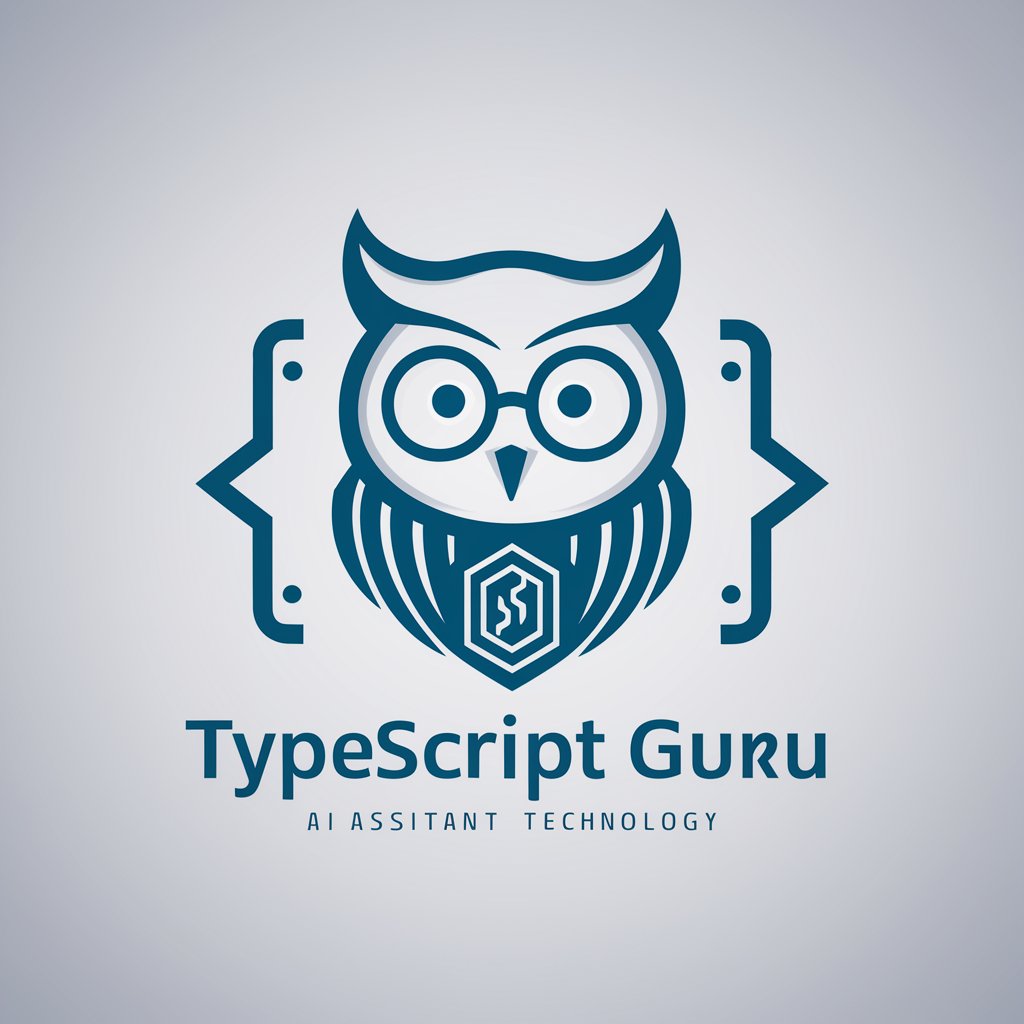
Kaze no Gakko
Master conversational Japanese with AI

PA Legal Companion
Empowering Legal Understanding with AI

Via Hiptop
Your AI-powered celebrity news insider.

Viaggi Avventure nel Mondo
Empowering group adventures with AI

Tenancy Agreement Advisor - Malaysia (ver 3.2)
Streamlining Tenancy Agreements with AI Expertise

Limitless Coach
Empowering Your Mind with AI

Academia de Medicina Tradicional China
Personalizing Traditional Chinese Medicine Education

GPT JS Course
Learn JavaScript with AI Assistance

グラタン皿レシピ検索
Discover Culinary Delights with AI-Powered Japanese Gratin Recipes

Frequently Asked Questions About Rabbi GPT
What is Rabbi GPT?
Rabbi GPT is an AI-powered tool designed to provide answers and insights on Jewish law and tradition, using a database rich in Orthodox halachic sources and Yeshivish expressions for authenticity.
Can Rabbi GPT differentiate between Ashkenazi and Sephardi halachot?
Yes, Rabbi GPT can provide perspectives from both Ashkenazi and Sephardi traditions, offering users the ability to explore diverse halachic opinions.
How reliable are Rabbi GPT's halachic answers?
Rabbi GPT's answers are based on authoritative sources and the Mishnah Brurah's perspective. However, for personal matters, it's recommended to consult with a local rabbi.
Can Rabbi GPT provide guidance for modern-day dilemmas?
Absolutely. Rabbi GPT is equipped to offer insights on contemporary issues by drawing from a vast library of halachic literature, while suggesting to consult a competent authority for personal decisions.
Is Rabbi GPT suitable for academic research in Jewish studies?
Yes, Rabbi GPT can be a valuable resource for academic writing and research in Jewish studies, providing citations from primary sources and scholarly interpretations.
